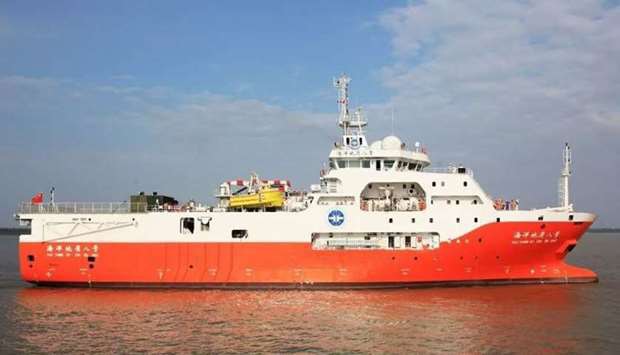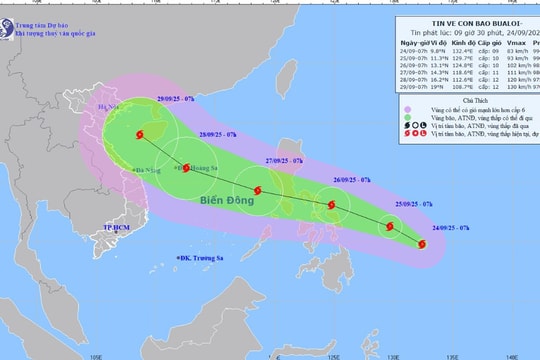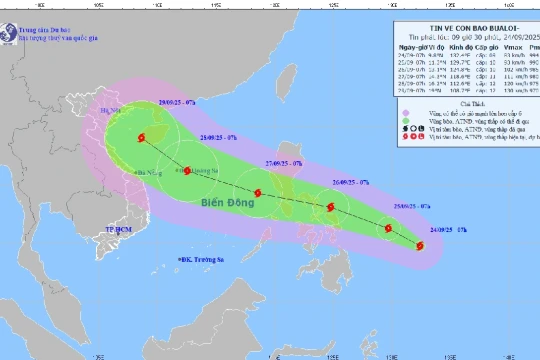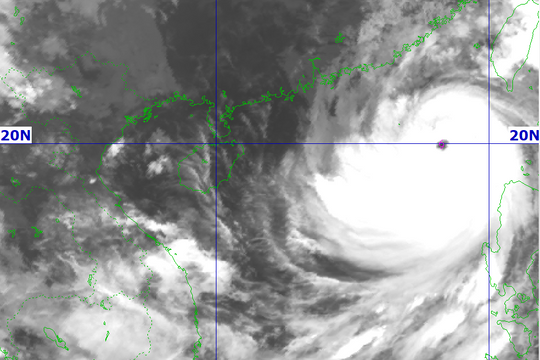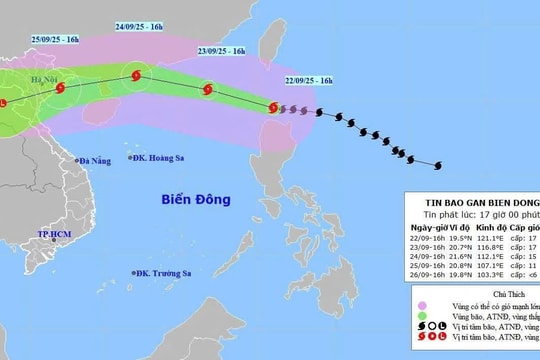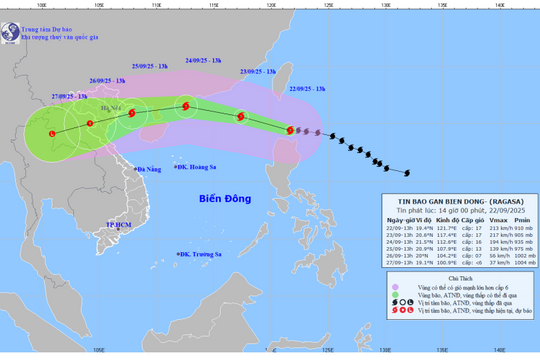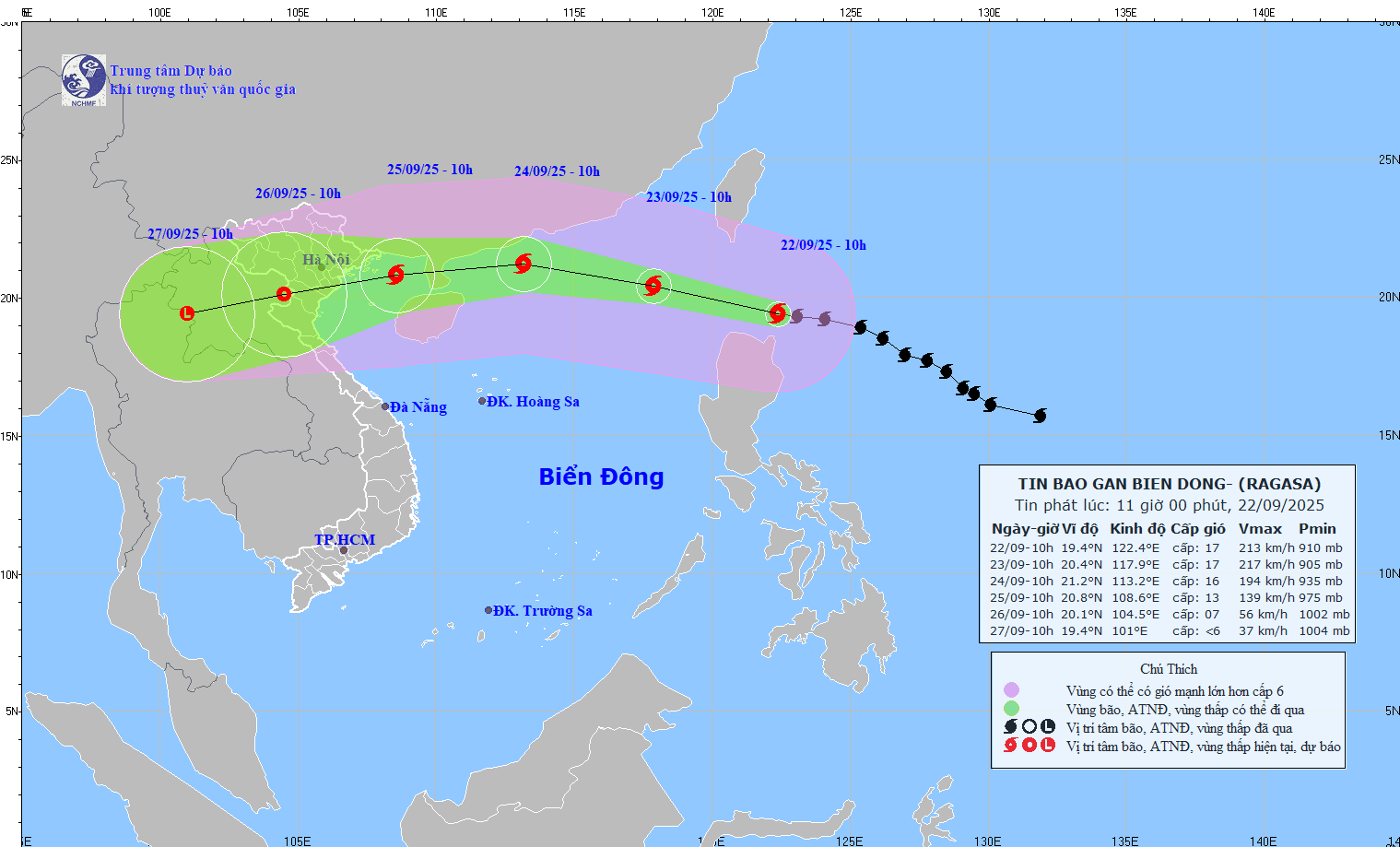China's Misbehavior in the East Sea from an Expert's Perspective
China's Haiyang Dizhi 8 vessel group operating in Vietnam's exclusive economic zone and continental shelf has violated international law.
In recent times, survey vesselsOceanography 8China's Haiyang Dizhi 8 illegally entered Vietnam's exclusive economic zone and continental shelf in the southern part of the East Sea. Chinese coast guard ships and maritime militia ships accompanied and protected this ship.
International and domestic public opinion strongly condemns China's violations of Vietnam's exclusive economic zone and continental shelf.
|
| Dr. Pham Lan Dung - Vietnam Association of International Law. |
From a legal perspective, how did China's actions violate international law? Dr. Pham Lan Dung - Vietnam Association of International Law has given specific analysis on this issue.[*This is Dr. Lan Dung's personal opinion, not representing any agency or organization].
According to the 1982 United Nations Convention on the Law of the Sea (UNCLOS 1982), states have sovereign rights to explore, exploit, conserve and manage living and non-living natural resources in their exclusive economic zones. States have jurisdiction over the establishment and use of artificial islands, installations and structures; marine scientific research; and the protection and preservation of the marine environment. In the exclusive economic zone, other states have freedom of navigation and overflight, and the right to lay submarine cables.
Thus, other countries are not allowed to conduct exploration and surveys in Vietnam's exclusive economic zone. The use of equipment and the conduct of exploration and surveys by the Chinese survey vessel Haiyang Dizhi 8 while traveling in the exclusive economic zone shows signs of violating the sovereign rights to explore natural resources in Vietnam's exclusive economic zone.
The fact that the Haiyang Dizhi 8 group of ships (at its peak, there were up to dozens of escort ships) moved like a checkerboard in Vietnam's exclusive economic zone and continental shelf and carried out exploration activities makes the level of violation even more obvious. If the Vietnamese coast guard ships request the Chinese survey ships to stop exploration activities and leave Vietnam's exclusive economic zone, take measures to protect the sovereignty rights in the exclusive economic zone, but the Chinese ships still take aggressive measures, the level of violation will be even more serious.
However, in order to draw a conclusion from a legal perspective in such cases, many factors need to be carefully considered.
Determine the location and legal status of the sea area where the violation occurred
The location where the activities of the Haiyang Dizhi 8 group of ships took place plays an important role in determining the violation. The spokesperson of the Vietnamese Ministry of Foreign Affairs affirmed that this is a completely Vietnamese sea area, determined in accordance with the provisions of the 1982 United Nations Convention on the Law of the Sea. Through this statement, it can be seen that the exploration activities took place in a sea area located no more than 200 nautical miles from the coast of Vietnam, without overlapping or being disputed with any country. China has no basis to make any claim to this Vietnamese sea area.
|
| Haiyang Dizhi 8 survey vessel. Photo: Gulf Times. |
First, the Chinese coast is more than 500 nautical miles away from here.
Second, the entities in the Spratly Islands, according to the Arbitral Award in the Philippines-China case, cannot have a maritime zone wider than 12 nautical miles, so China's illegal occupation of the entities in the Spratly Islands cannot create any basis for China to claim the above-mentioned maritime zone of Vietnam. Moreover, the Spratly Islands is not an archipelagic state and therefore cannot have an archipelagic baseline.
Third, the statement by the Chinese Foreign Ministry spokesman that they have sovereignty over the coral reefs in the South China Sea area is completely without legal basis and violates Vietnam's sovereignty rights in Vietnam's exclusive economic zone and continental shelf. According to the provisions of international maritime law, submerged coral reefs are not the subject of separate sovereignty claims. China, like no other country, can claim separate sovereignty over the coral reefs in this area. Any area of these reefs located in Vietnam's exclusive economic zone and continental shelf is part of Vietnam's exclusive economic zone and continental shelf. Vietnam has the right to install artificial islands, construct structures and explore and exploit resources there because that is Vietnam's sovereign right in its exclusive economic zone and continental shelf.
Situations and measures on the ground
In the field, when the situation as mentioned above occurs, the law enforcement vessels of the coastal state can take actions to approach to monitor, clarify the problem, request the Chinese survey vessel to stop the exploration activities and leave its exclusive economic zone. In case the request is made but not implemented, the law enforcement vessels of the coastal state can approach closer to perform their functions, continue to request, and not allow the survey vessel to continue exploring.
In case of necessity, if Chinese survey vessels or escort vessels obstruct or oppose the coastal State's law enforcement vessels exercising their authority in the exclusive economic zone, the law enforcement vessels are entitled to take appropriate measures in response for the purpose of self-defense and performing their functions.
According to international law, the implementation of these measures must meet the requirements of necessity and proportionality. The statement of the spokesperson of the Vietnamese Ministry of Foreign Affairs shows that Vietnam's maritime authorities have exercised sovereignty, sovereign rights and jurisdiction peacefully and in accordance with the law to protect Vietnam's sea areas.
Identify the type of vessel illegally entering
Determining the type of Chinese vessels is also important from a legal perspective. The Haiyang Dizhi 8 survey vessel is under the management and use of the Chinese Government, and is also escorted by China Coast Guard/China Coast Guard vessels (roughly translated from English “China Coast Guard”) and Chinese militia vessels, so there is a basis to determine that the violations of the Haiyang Dizhi 8 survey vessel are Chinese. If the escort vessels take measures to obstruct or oppose the law enforcement vessels of the coastal state, it is also necessary to determine the type of vessel.
In clashes, countries often avoid using regular military forces such as navies because the use of force by regular armies under international law is an armed attack and is the basis for other countries to be able to use the right of self-defense.
Using law enforcement vessels, coast guard vessels, or militia vessels for escort is appropriate to the specific nature of the incident, and in cases of proactive aggression in areas where China deliberately claims contrary to the provisions of international law, they blatantly consider it their law enforcement activities.
The specific measures used by the parties in the event of a clash are also important from a legal perspective. Measures such as blocking, coercion, flanking, blocking or water cannons may be analyzed very carefully in terms of their extent and consequences to determine the extent of the violation and whether it constitutes a use of force, especially if the case is brought before international courts.
Even in cases where law enforcement forces perform their duties to protect the sovereign rights of a coastal state, is their use of force considered to be excessive or disproportionate?
Measures from a national perspective
From a national perspective, Spokesperson Le Thi Thu Hang stated that Vietnam has repeatedly contacted China through different channels, delivered diplomatic notes of protest, and resolutely requested an immediate end to the violations, the withdrawal of all vessels from Vietnam's waters, and respect for Vietnam's sovereignty and jurisdiction. This is evidence that Vietnam has persistently exchanged views with China, and applied negotiation measures in accordance with international law and the 1982 United Nations Convention on the Law of the Sea.
The obligation to exchange views is also the first requirement that countries must meet before wanting to bring a case to trial in international courts under the provisions of UNCLOS 1982.
Speaking at the ASEAN-China Foreign Ministers' Meeting held in Bangkok, Thailand at the end of July, Vietnamese Deputy Prime Minister and Foreign Minister Pham Binh Minh also pointed out that such actions seriously threaten the legitimate rights and interests of coastal countries, erode trust, increase tensions, and are not beneficial to peace and stability in the region.


